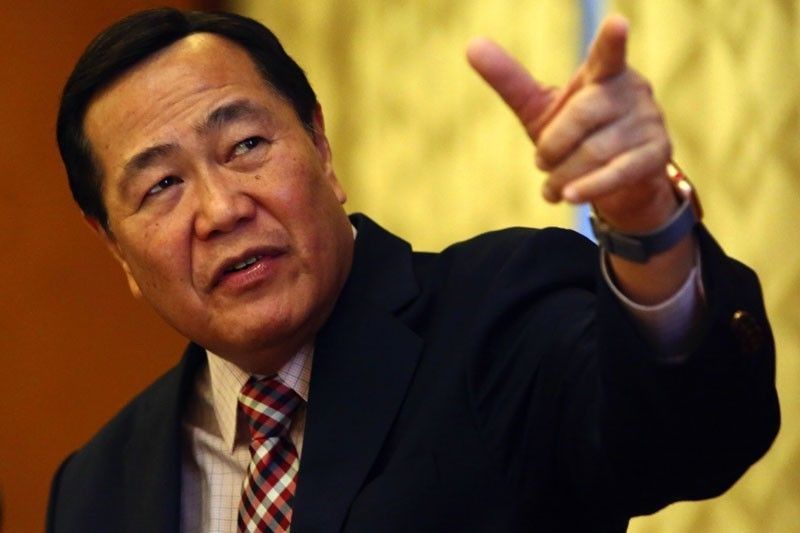Philippines' ICC cooperation may include issuance of arrest warrant — Carpio

MANILA, Philippines — Former Supreme Court (SC) Associate Justice Antonio Carpio said that the government’s issuance of an arrest warrant for former President Rodrigo Duterte could be a form of cooperation with the International Criminal Court (ICC).
The former magistrate echoed an SC ruling, saying that the Philippines still has an obligation to the international tribunal despite the country’s membership being withdrawn.
“We are no longer a member state, but I think the decision of the Supreme Court said that since the offense with which (former) President Duterte is charged happened while we were members of the ICC. We are obliged to cooperate up to now,” Carpio said in an interview with reporters on Wednesday.
“That cooperation may include implementing a warrant of arrest,” he added.
Carpio referred to the 2021 Pangilinan et al. vs. Cayetano et. al. case, in which the SC rejected the petitions, challenging the validity of the Philippines' withdrawal from the ICC.
The case, however, citing Article 27 of the Rome Statute, pointed out that the Philippines is still bound to its obligations to the international tribunal as the alleged crimes against humanity were committed when the country was still a member state.
Carpio issued a statement after former presidential spokesman Harry Roque said in a Facebook livestream on February 4 that the former president received information that he might receive an arrest warrant anytime.
“I was not able to sleep because Tatay Digong called me and he said he received information that he could be arrested any time,” Roque said.
As a response, Carpio said that the former president should cooperate if he wants his voice to be heard.
“So if you are innocent…the best thing to do is to go there and present your side,” Carpio said in an interview with reporters.
The Philippine National Police on Wednesday assured that it would not serve an arrest warrant on the former president, following the order of President Ferdinand Marcos Jr. to government agencies not to assist the ICC.
On January 23, Marcos affirmed that the government would not help in the ICC probe, saying that it is a “threat” to the country’s sovereignty.
In an interview with OneNews' “Big Story”, ICC Assistant to Counsel Kristina Conti said that there is a “possible” presence of the ICC investigators in the Philippines, as they were already conducting an investigation into the alleged crimes against humanity during Duterte’s war on drugs.
“I’m not in the position to confirm or to deny their presence, primarily because of security…their security and to those who are they talking to,” Conti said.
A political question
In response to Carpio’s statement, the country’s top lawyer said that the country’s cooperation with the ICC is a “policy issue” that is “beyond the realm of the judiciary.”
“The decision of the SC in Pangilinan vs Cayetano was on the sole and exclusive issue of the validity of our country’s withdrawal from the ICC without Senate concurrence,” Solicitor General Menardo Guevarra said in a Viber message with Philstar.com.
“The SC’s comment on continuing cooperation was obiter dictum and did not constitute a doctrinal ruling,” he added.
Guevarra also said previously that the ICC can issue an arrest warrant but cannot be enforced in the country.
In November 2023, former senator and justice secretary Leila de Lima said that the Philippines could easily rejoin the Rome Statute as there was no “Senate concurrence” when the country withdrew as a member state in 2019.
The Philippines withdrew from the Rome Statute in 2019 after ICC prosecutor Fatou Bensouda started her preliminary investigation on human rights violations during former President Duterte’s war on drugs.
Official figures indicate that there were approximately 6,000 deaths during the previous administration's drug war. However, human rights organizations contend that the actual number might be as high as 30,000. — with reports from the Star/Daphne Galvez
- Latest
- Trending




































